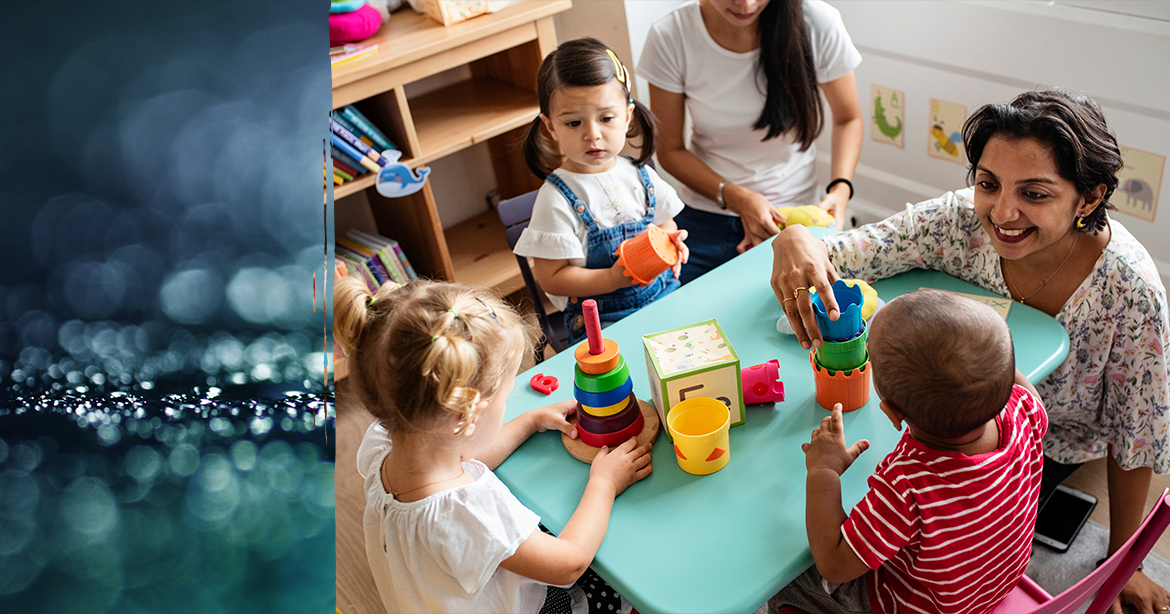What are the Benefits of Early Childhood Education?

Children are sponges. They are born ready to learn, and are constantly growing and changing, absorbing new ideas from the world around them. Young children especially are capable of learning countless new things each day that will have a profound impact on who they become as they grow up. During the years between birth and kindergarten (or around five years old) children first begin to develop many of the skills and interests that will stay with them throughout their lives. Early childhood education (ECE) refers to that critical time in a child’s life.
The award-winning MUSE Global School in sunny Calabasas, CA offers programs for children as young as two-and-a-half that promote education for the youngest citizens of the world and aim to nurture and enrich progress and development during this period.
The Value of ECE Education
It’s undeniable that especially at such an early age, a child’s parents are their primary source of learning. But studies (including this one from the Harvard Graduate School of Education) show that children who, in addition to learning at home, receive ECE, are more prepared to enter kindergarten, and retain that advantage throughout their K-12 education and beyond. They arrive at school better equipped with the cognitive and social-emotional skills they need to encourage them to keep learning. Children who benefit from ECE not only have higher graduation rates, but acquire a love and enthusiasm for learning that can last them throughout their entire lives.
Better Socialization
At its core, the ability to interact with others and make friends and connections is an extremely important foundational skill, one that gives us confidence and motivation in everything we do. Most young children want to play with others their age, and the MUSE Global School child-centered, play-based approach to ECE allows children the opportunity to do just that. When they have a positive environment in which to interact with one another as well as with their teachers, children easily adopt important social skills such as sharing, cooperation, and teamwork.
More Diversity
It’s crucial now more than ever in our increasingly global society not only for children to make connection with others, but to encounter people and perspectives that may differ from who and what they see in their day-to-day lives at home.
Being able to experience and relate with their peers on a regular basis nurtures respect and empathy. Young children are, by nature, individualistic. Learning empathy can be challenging because of this, but by spending time observing and interacting with others their age, children can forge lifelong friendships and perspectives that make them more responsible and open-minded grown-ups. It allows them to better understand their place in the world, and that everyone, no matter their background, has their own culture, beliefs, and ethnicity, and is unique and special in their own way.
Increased Independence and Patience
Participating in ECE is often a child’s first experience spending a meaningful amount of time away from home. Learning to be on their own in a new place, apart from their families, is crucial in teaching children a sense of independence, self-reliance and regulation. For example, a child might learn to focus and pay attention when someone new is talking to them, or to have patience when another child is playing with a toy they also want to play with. This may be especially important with a first or only child, as they often do not have to learn to share or take turns at home.
Early Exposure to STEM
There might be some debate as to when young children should be exposed to Science, Technology, Engineering, and Math as part of their education, but the truth is, these principles are all around them. There’s no parent who could deny that children love to explore, build, observe, and be messy – all things inherent to STEM learning. At MUSE, children are introduced to the basics of literacy, math, and science in ways that allow their interests to steer their education. And early exposure to STEM not only promotes ongoing academic success, but inspires a passion for curiosity and lifelong exploration.
International Perspective
Many nations around the world are beginning to understand the importance of early childhood education. UNESCO (United Nations Educational, Scientific and Cultural Organization), one of the world’s leading organizations in promoting peace and security through education, says about ECE, “Early childhood care and education (ECCE) is more than preparation for primary school. It aims at the holistic development of a child’s social, emotional, cognitive and physical needs in order to build a solid and broad foundation for lifelong learning and wellbeing. ECCE has the possibility to nurture caring, capable and responsible future citizens.”
Through early childhood education we can set children up for success, academically, socially, personally, and globally. At MUSE Global School, children are given the opportunity to grow in a safe, friendly, and fun environment that encourages them to embrace learning and find passion in the world around them.

